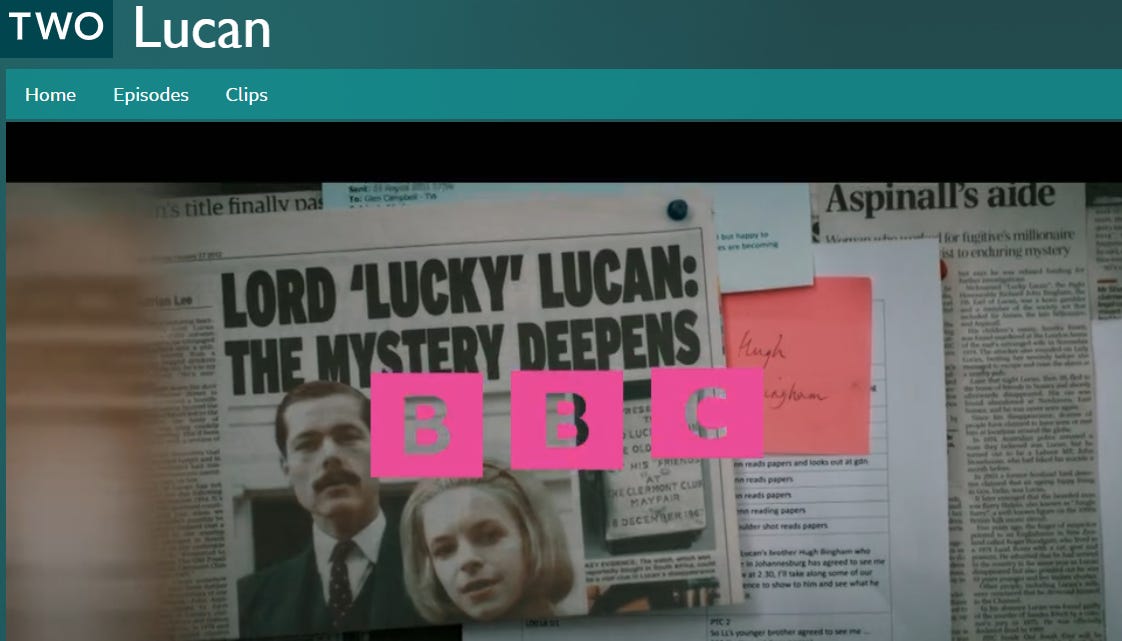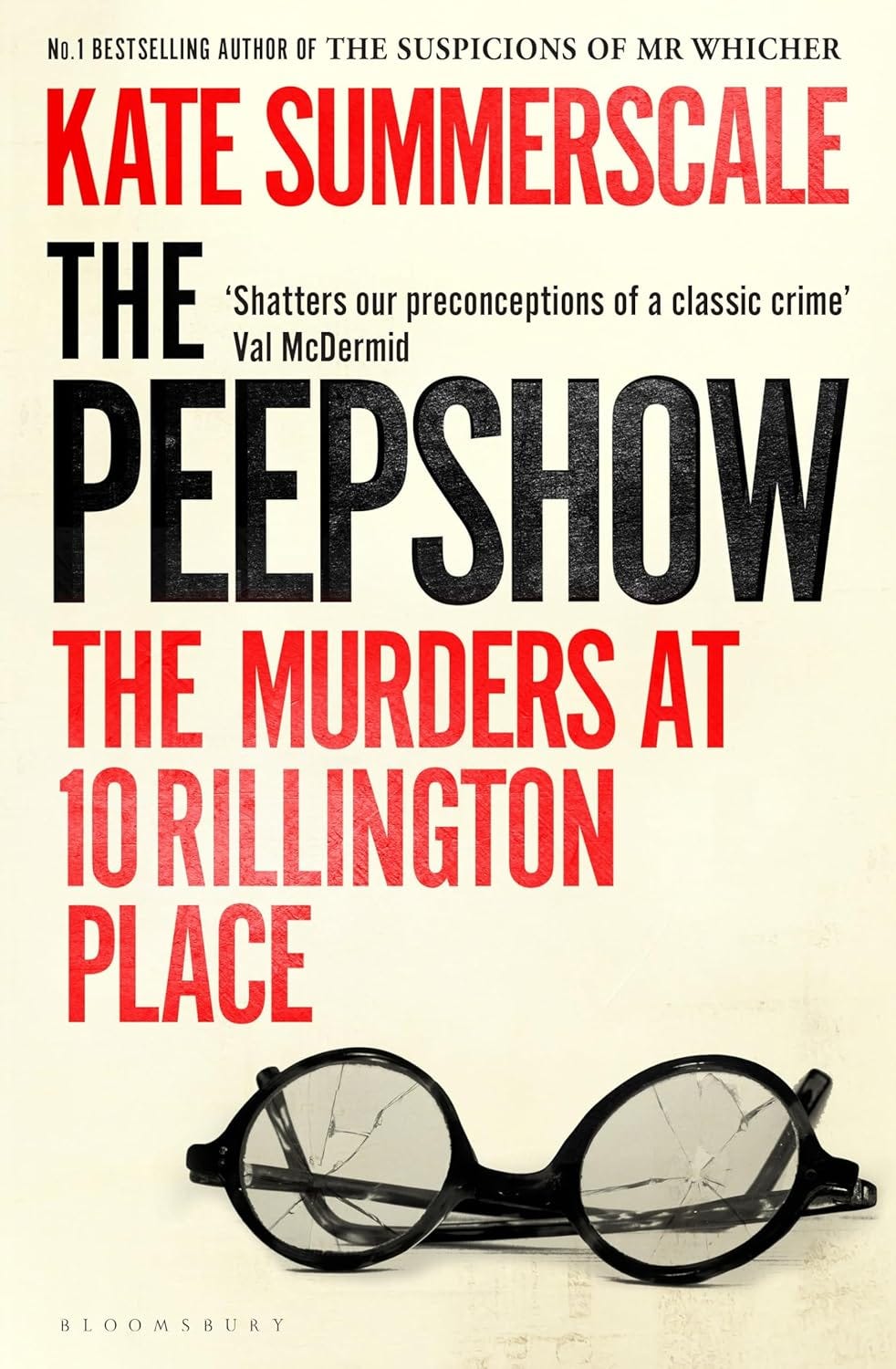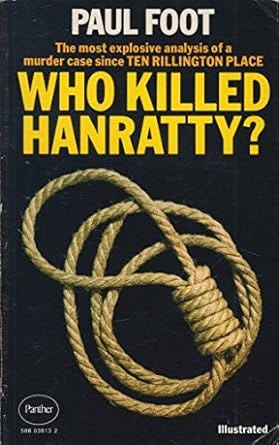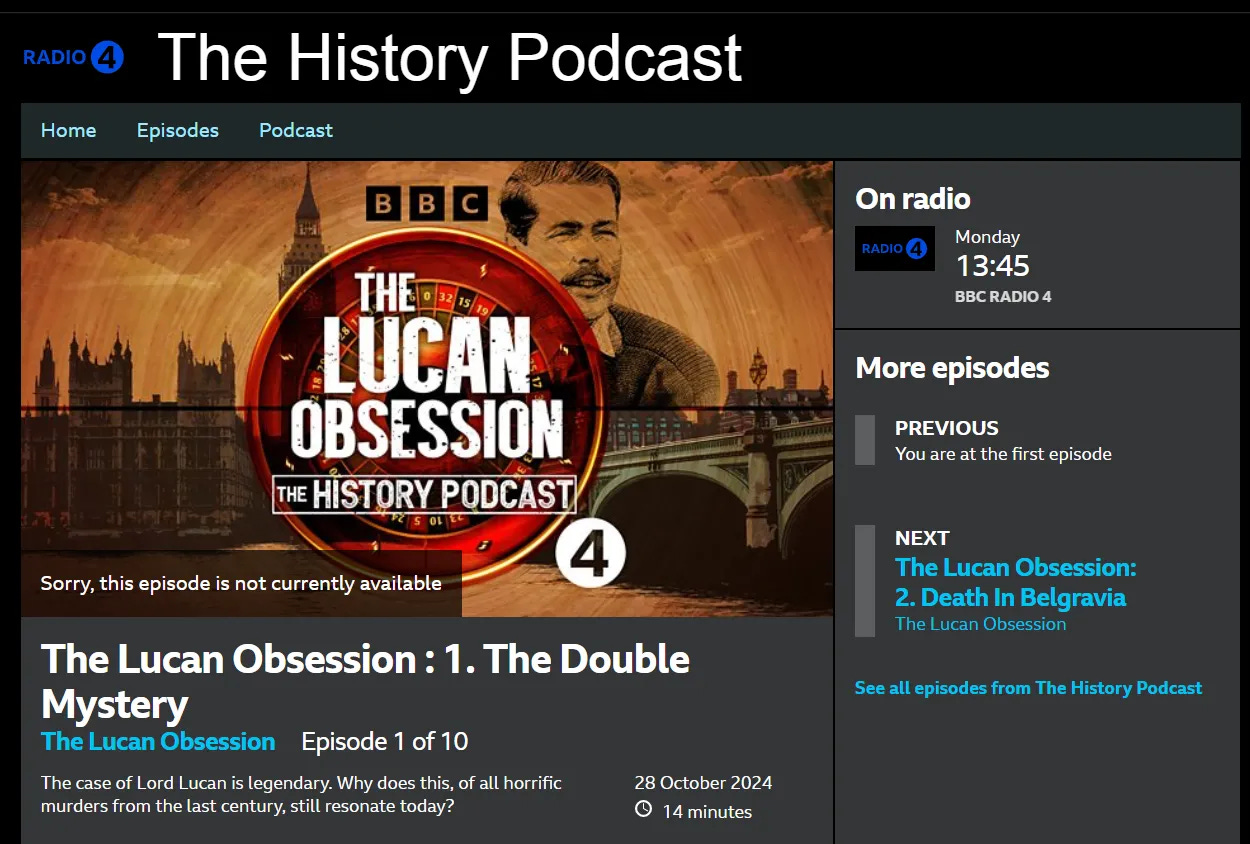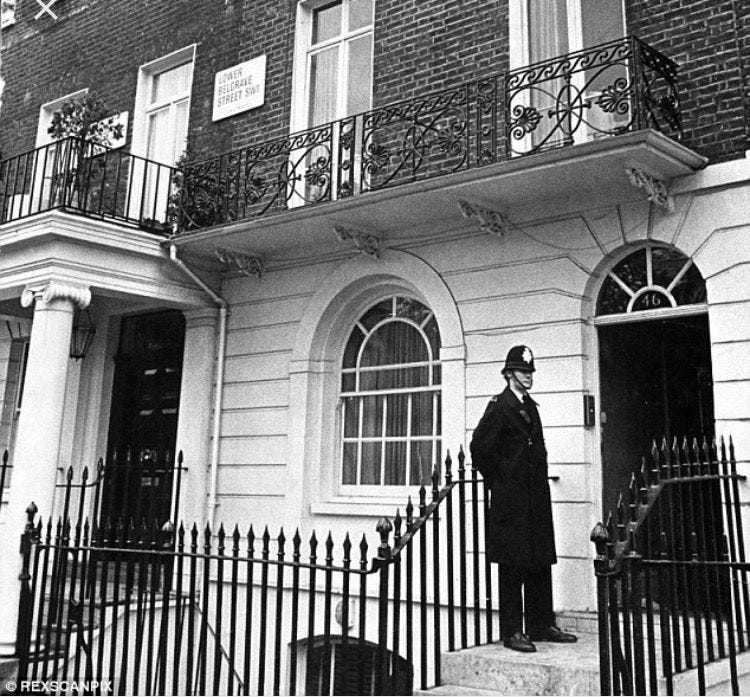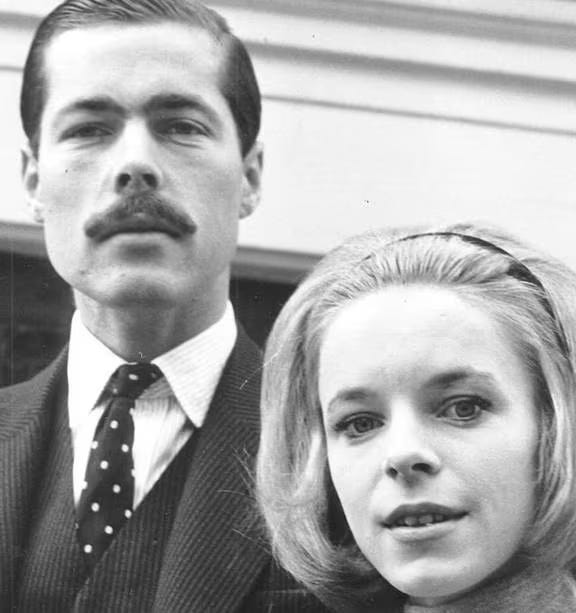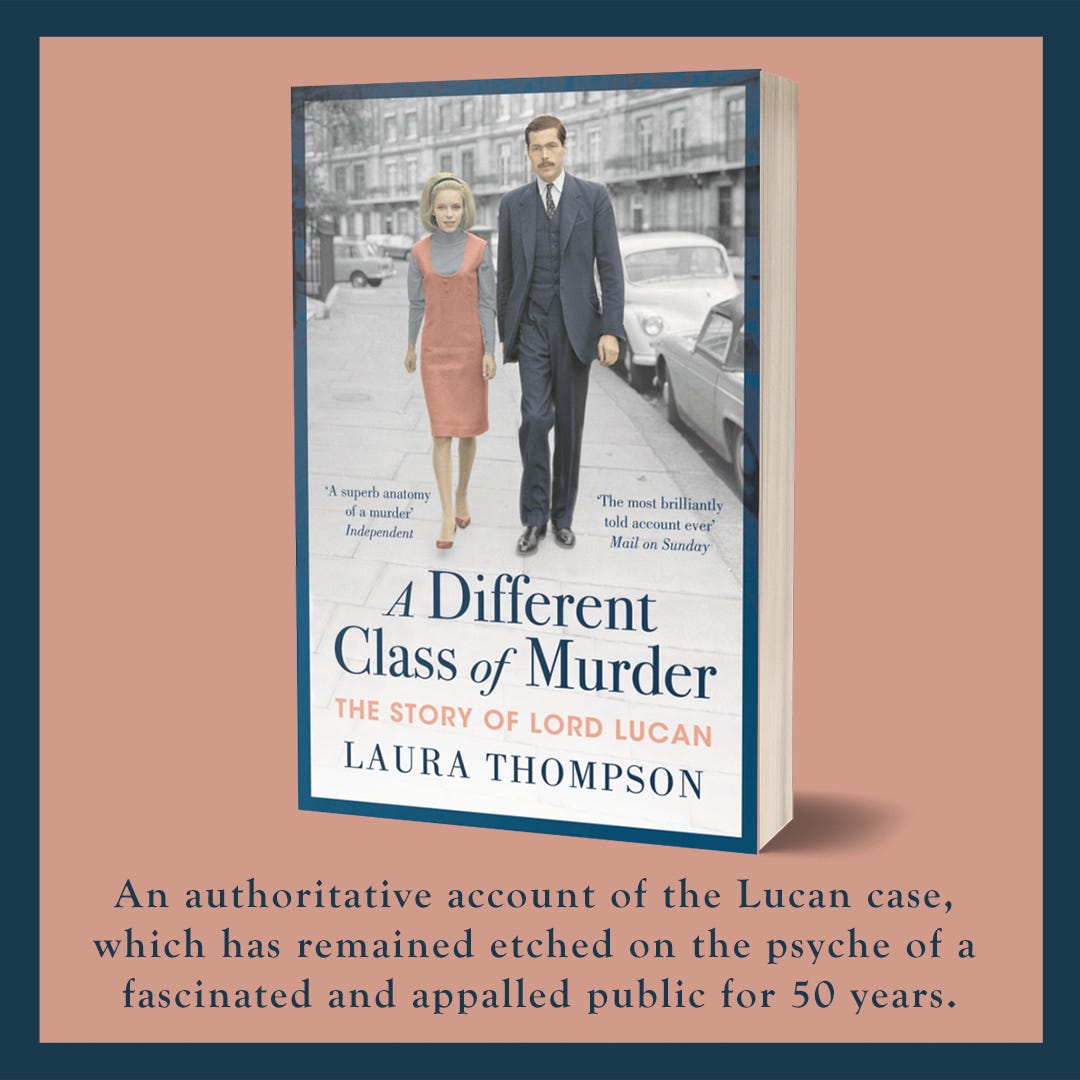About six years ago, I was told by a publisher that true crime was ‘finished’ as a genre.
Good call.
Since this anti-Nostradamus made his proclamation there has - as we know - been a veritable explosion of podcasts, streamer series and books; too many, one might say, although I can never see that this matters. One identifies the top-class stuff, such as the recently-published The Peepshow by Kate Summerscale (a brilliant re-examination of the multiple murders at 10 Rillington Place) or the
Behind the Crimes podcast, and the other stuff - derivative/ quasi-pornographic/ revisionist-for-the-sake-of-it/ celebrity-getting-in-on-the-act - can be ignored.For me, true crime is human nature writ large. For that reason it cannot be ‘finished’. Leaving questions of fashion aside, the notion is simply absurd: almost everybody is interested in some aspect of crime. I myself have always been interested in murder, especially domestic murder, not the act itself (like my beloved Agatha I shun descriptions of violence) but what goes before and after. That seems to me quite natural. I grew up in a house with a cache of true crime books - about James Hanratty and the A6 Murder, the Muriel McKay kidnapping, and indeed Rillington Place (Ludovic Kennedy’s noble, flawed attempt to prove a miscarriage of justice). These were tactfully semi-concealed although naturally I found them, and was both terrified and fascinated by the shadowy corner in which they stood. I can see the covers now, unsophisticated but effective, and feel the frisson that they created: thus an obsession with certain stories was born.
I even excuse the internet detectives who get so much flak at the moment. What they do also seems natural to me - even if the way in which they do it (as with the recent Nicola Bulley case) sometimes becomes bonkers/ unacceptable. But trying to solve, to understand… that too is human nature. It is the impulse that makes crime fiction the truly indestructible genre (again, there is way too much of it; again, nobody is forced to read The Fatal Boot-Stud by David Beckham, or whatever dodgy new product is destined for the Christmas market). I myself have written books about Lord Lucan and Edith Thompson in which, throughout, I am trying to analyse people and motives and words and data in order to penetrate the mystery of what really happened, which basically makes me an internet detective with a publishing contract.
And now we are in Lucan week. Thursday marks the 50th ‘anniversary’ of a case that has lost little (none?) of its ability to compel, enrage and perplex; even while writing this I noted a couple of new stories, communion-wafer-thin but heavily sold, purporting to offer new clues to that most desirable of things: a solution.
I am sure you know the facts, of which amazingly few are corroborated, but I shall state them briefly.
On 7 November 1974, Sandra Rivett, aged 29, the recently-employed nanny to Lord and Lady Lucan’s three children, was bludgeoned to death at the family home: 46 Lower Belgrave Street, SW1, which stands within the creamy-white island of London’s most sacred postcode, and whose rebarbative air of privilege formed the most incongruous possible shield for a scene of brutal murder.
The other woman in the house that night, Lady Lucan - Veronica, aged 37 - also sustained head injuries. According to her account, which has never really been questioned, the guilty party was her 39-year-old husband John, the 7th Earl Lucan, from whom she was estranged.
The ‘official’ version of events was that Lucan had killed Sandra in error; it was supposed to be her night off and in the darkness of the basement - where she had descended to make tea - he had mistaken her for his wife. He then attacked Veronica, who managed to talk him down. When she escaped from the house - running down the street to that most English of sanctuaries, the Plumbers’ Arms pub - he fled the scene.
We know that he made a couple of phone calls, wrote letters to a couple of friends, and called in at a house in Uckfield, Sussex. Then, in the early hours of 8 November, a car that Lord Lucan had previously borrowed was seen parked in a residential street in the port of Newhaven, some seventeen miles from Uckfield. Nothing is known of what happened to Lucan himself. No body has ever been found, which has led to a still-enduring belief that he may, at the age of nearly ninety, be alive. He has, indeed, been ‘seen’ in almost every country on earth.
To my mind the multiplicity of Lucan sightings derive, not so much from a belief that he is alive, but from a deeper conviction, that the ‘Establishment’ can get away with things - including murder - that the rest of us cannot. Which is perfectly true: every day we see evidence of how ‘they’, that shady and unattainable entity, live untouched by such trifles as accountability. I just don’t happen to believe that a minor aristocrat, living off a relatively modest family trust and teetering on the cliff-edge of bankruptcy, was the Establishment. Not in 1974.
But who knows? I could be wrong. And now the son of Sandra Rivett, who was adopted at birth (in 1967) but who - having learned in adulthood the identity of his mother - has dedicated himself to tracking down Lord Lucan, claims to have found him in Australia, living as a Buddhist monk. The BBC2 documentary tells this story, along with that of the wider case.
I am in the documentary; there is also a brief clip from a taped interview that I made with one of Lucan’s friends, to whom I spoke for my book A Different Class of Murder, first published for the fortieth anniversary. Several of the main players, most of whom have since died, were willing to speak to me. Because of what they said, much of which I was unable to use until after Veronica Lucan’s death - a second edition of the book was published in 2018 - I see this as essentially the tale of a marriage: a Strindbergian fight to the death between the Lucans, in whose crossfire poor Sandra was caught.
Other theories about the case are, of course, available. In my book I identify and analyse five possible solutions to the crime.
And, as Thursday marks my first anniversary in this lovely place, where I have read so much wonderful writing and encountered so many talented, generous people, I thought that - in true true crime style - I would post one of these every day for the rest of the week. I have never used the ‘chat’ facility on here but if anybody wanted to talk about Lucan in there, please do: I should love to hear thoughts or answer (if I can) any questions.
What follows, meanwhile, is a short extract from my book, on the subject of true crime and the human urge to solve.
Keep reading with a 7-day free trial
Subscribe to Laura Thompson’s Substack to keep reading this post and get 7 days of free access to the full post archives.




